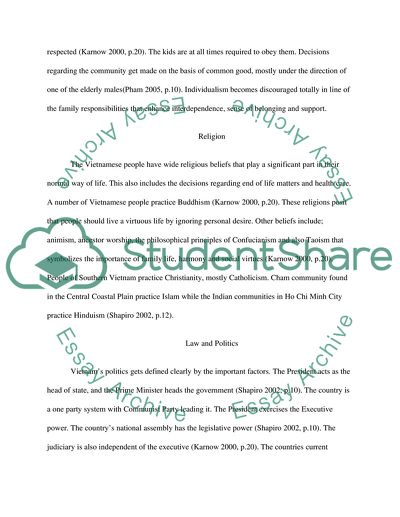Cite this document
(“Understanding Vietnamese Culture Essay Example | Topics and Well Written Essays - 1500 words”, n.d.)
Retrieved from https://studentshare.org/culture/1601831-vietnamese-culture
Retrieved from https://studentshare.org/culture/1601831-vietnamese-culture
(Understanding Vietnamese Culture Essay Example | Topics and Well Written Essays - 1500 Words)
https://studentshare.org/culture/1601831-vietnamese-culture.
https://studentshare.org/culture/1601831-vietnamese-culture.
“Understanding Vietnamese Culture Essay Example | Topics and Well Written Essays - 1500 Words”, n.d. https://studentshare.org/culture/1601831-vietnamese-culture.


